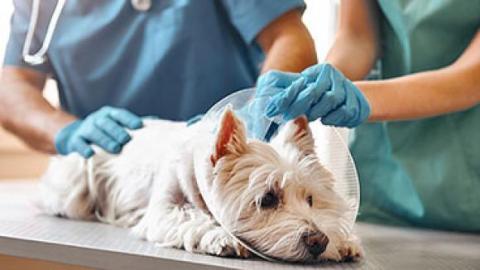schedule
Dates
location_on
Delivery method
Online
credit_card
Cost
$1707.00
person_pin
Instructor
Registration Open
Description
This course will provide students with the knowledge and skills to assist in small animal medical emergency and critical care facilities. Characteristics of skilled patient nursing care include managing patients with rapidly deteriorating medical and surgical illnesses, major trauma, and life-threatening disease. Personnel must be trained, knowledgeable, and proficient at addressing minute-to minute changes in status and condition.
Syllabus
Course Overview:
This course will provide students with the knowledge and skills to assist in small animal medical emergency and critical care facilities. Characteristics of skilled patient nursing care include managing patients with rapidly deteriorating medical and surgical illnesses, major trauma, and life-threatening disease. Personnel must be trained, knowledgeable, and proficient at addressing minute-to minute changes in status and condition. Veterinarians and veterinary technicians are valued members of the care team. With teamwork, training, and development of skills discussed in this course, emergent and critically ill animals can survive.
Learning Outcomes:
At the end of this course, the student will be able to:
• Successfully triage multiple emergencies at once to rank severity of illness for delivery of care
• Understand how to assess and manage dogs and cats with acute or life-threatening illness such as respiratory distress, shock, acute abdomen, multiple trauma, and cardiovascular disease
• Prepare and administer fluids and medication by constant rate administration
• Perform and interpret critical care diagnostic and monitoring tests such as pulse oximetry, end-title carbon dioxide, and blood gas parameters
• Communicate effectively with clients presenting animals with acute, life-threatening illness
Instructor:
Marie E. Kerl DVM, MPH, MBA
Diplomate, American College of Veterinary Internal Medicine (Small Animal Internal Medicine)
Diplomate, American College of Veterinary Emergency and Critical Care
Adjunct Teaching Professor
University of Missouri College of Veterinary Medicine
Required Materials:
The following textbook is required and can be purchased from vendor of choice:
Small Animal Emergency and Critical Care for Veterinary Technicians, 4th Ed.
Andrea M. Battaglia and Andrea M. Steele, 2021, Saunders Elsevier, St. Louis, MO
Length:
16-weeks
Department:
University of Missouri College of Veterinary Medicine
Credit:
Noncredit/4.5 CEUs
Audience:
Adult Learners, Veterinarians, Veterinary Technicians
Accommodations
University of Missouri Extension complies with the Americans with Disabilities Act of 1990. If you have a disability and need accommodations in connection with participation in an educational program or you need materials in an alternate format, please notify your instructor as soon as possible so that necessary arrangements can be made. Language access services, such as interpretation or translation of vital information, will be provided free of charge to limited English proficient individuals upon request. All requests must be made a minimum of 14 days before course start date. MU Extension will attempt to implement late requests but cannot guarantee they will be met.
Cancellations and Refund Requests
Access MU Extension’s Course Cancellation and Refund Policy for details.
